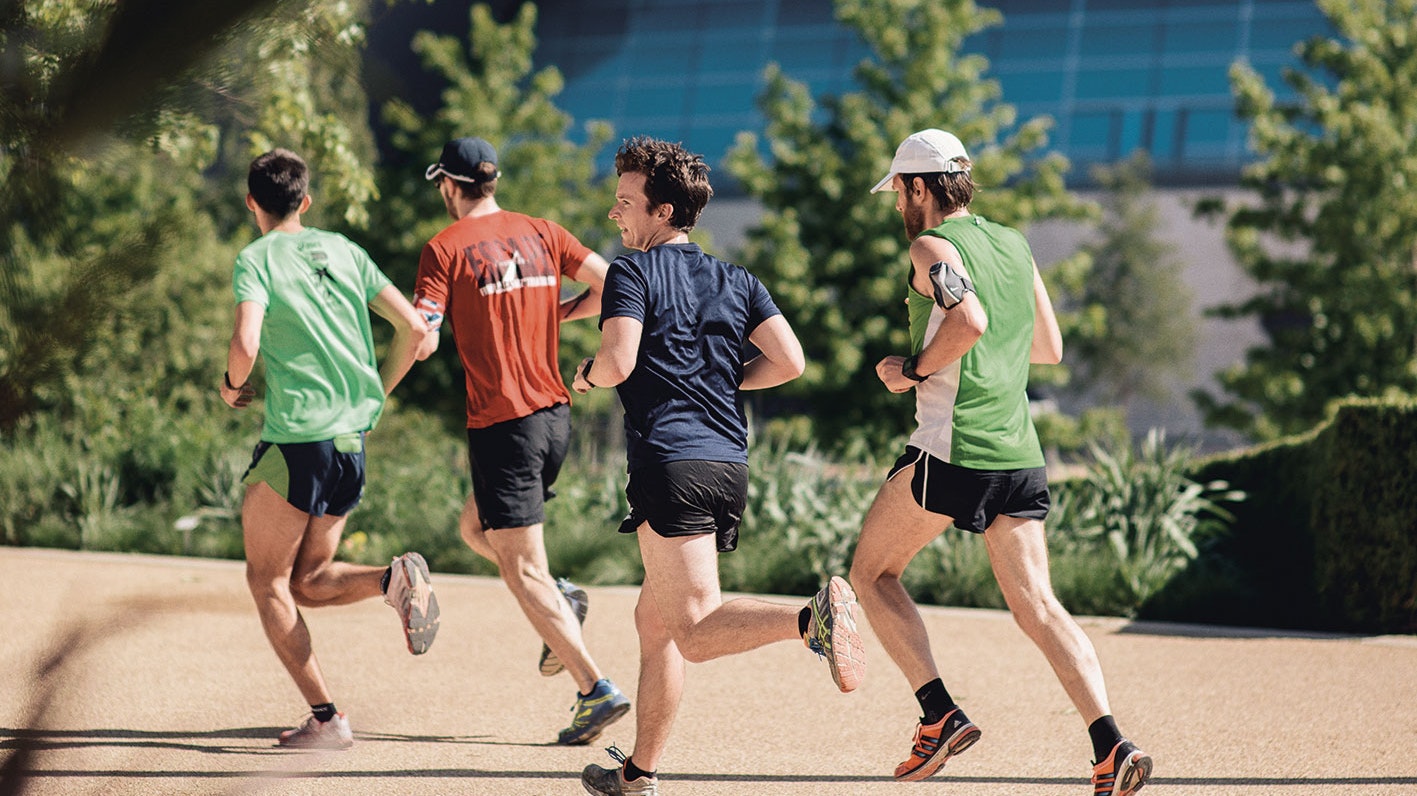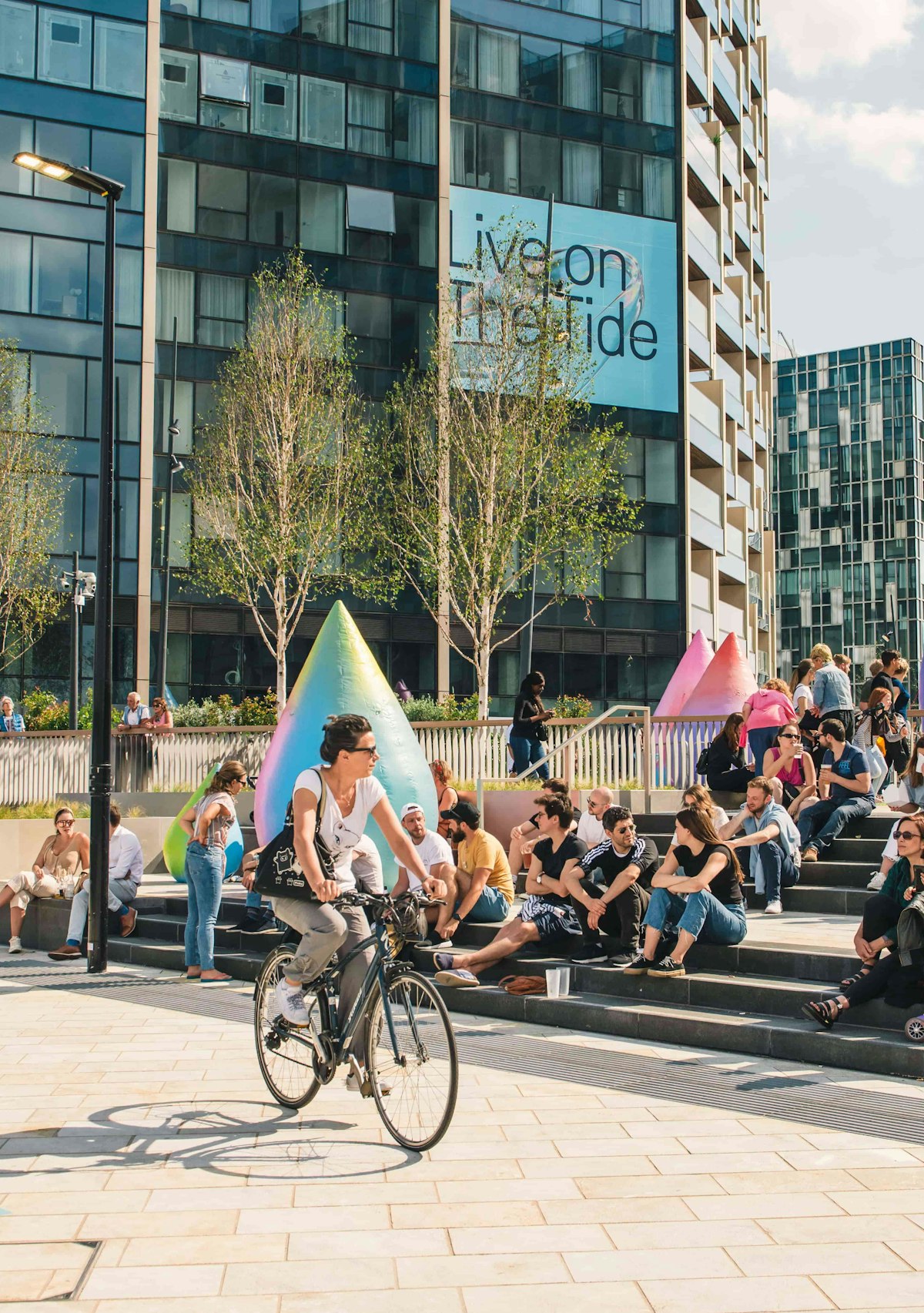
Pressure Drop
Did you know April is Stress Awareness Month? Here are some of the easiest ways to ease off some of life's pressures.
Yoga
On the face of it, yoga’s increasing popularity might seem to be all about getting trim and toned. But this ancient practice, which means “union” in Sanskrit, is as much about tending to the mind as it is to the body.
“I started when I was working in a stressful and challenging environment, primarily for physical reasons,” says Greenwich Peninsula–based yoga teacher Hannah Calvert. “However, I soon came to realise the positive impact that yoga was having on my stress levels.”
Calvert says that a regular yoga practice can help improve breathing techniques, which in turn helps with slowing down and appreciating life more. Find her on Instagram at @Resonance_Yoga.
“Regular yoga practice can help improve breathing techniques, which in turn helps with slowing down and appreciating life more.”
Reading
It can be all too easy to reach for your phone when you’re on the commute, or fire up Netflix after a long day at work. But reading a book has been proven to be a far better stress-buster.
A 2009 study by researchers at the University of Sussex found that reading for just six minutes reduced stress levels by a massive 68%, more than listening to music or powering up your games console.
It can be easy to find excuses not to read, so joining or setting up a book group that meets once a month is a great way to give yourself that extra nudge. Try the Book Group Greenwich, which meets once a month in a pub in Greenwich. Online book groups have become more prevalent in recent years, too. Nature and travel writer Robert Macfarlane regularly conducts fascinating chats via his Twitter account (@robgmacfarlane), with people from across the world discussing ideas.
“A 2009 study by researchers at the university of Sussex found that reading for just six minutes reduced stress levels by a massive 68%, more than listening to music or powering up your games console.”
Swimming
Recent research in the British Medical Journal has shown that swimming in water below 15ºC can reduce stress and potentially lessen the effects of anxiety and depression.
“Swimming not only regulates your breath, but reconnects you to the real, elemental world: a sort of compulsory mindfulness takes over when you’re in the water, you have to exist in the moment to stay alive,” says Alexandra Heminsley, author of Leap In and a year-round sea swimmer.
It’s not just cold water that can prove effective. Swimming laps of an indoor pool or lido helps releases endorphins that can boost your mood, as well as make you feel calmer. Charlton Lido in south-east London is heated and open throughout the year, making it the ideal place to catch the swimming bug.
“Swimming not only regulates your breath, but reconnects you to the real, elemental world: a sort of compulsory mindfulness takes over when you’re in the water, you have to exist in the moment to stay alive.”
Therapy
Speaking openly about how you feel to a professional therapist can be daunting. But for those whose stress has become all-encompassing, it can also be an amazing way to lighten their mood and unburden themselves to a third party.
Therapy comes in many forms, from cognitive behavioural therapy, which looks to rework unhelpful habits, to psychoanalytic therapy, which aims to build a relationship between client and therapist by exploring past experiences. There are also a growing number of eco therapists who specialise in taking clients out into the countryside and talking through the issues that are affecting them in an outdoor setting.
Therapy isn’t just about doing fixed weekly sessions, however; semi-regular visits can also be useful. “Choose a therapist well, someone that you like, and then use them like your hairdresser,” says Ruth Allen, an outdoor therapist and counsellor whose @Whitepeak_Ruth Instagram feed has become a huge hit. “Be willing to check back in with them for maintenance.”
“Choose a therapist well, someone that you like, and then use them like your hairdresser – Ruth Allen, an outdoor therapist and counsellor.”
Running
Runners are always keen to espouse the stress-busting power of pounding the pavements. They’re not wrong. Research published in Health Psychology in 2017 found that a regular run helped slash negative thoughts about stressful events such as arguments with family or pressure at work by 17%.
It’s not just about how you feel afterwards. Pulling your trainers on and getting out of the door means you’re carving out time for yourself to process any stressful thoughts, while also doing something that’s inherently meditative. Chances are you’ll also get a juicy endorphin rush once you’re done, known as “runners’ high” by those who go out in search of a fix regularly.
If you’re finding it hard to get motivated, Parkrun’s weekly Saturday events draw thousands across the country to public parks for a chance to tackle 5km in a friendly, supportive and non-competitive environment.
“Research published in health psychology in 2017 found that a regular run helped slash negative thoughts about stressful events such as arguments with family or pressure at work by 17%.”
Mindfulness
It’s easy to dismiss mindfulness as a buzzword. But the power of simple meditative practice can have a huge impact on stress. And, best of all, it doesn’t require you to carve out lots of dedicated time if you’re in a rush.
“Mindfulness is such a wonderful tool and so accessible,” says Jazz Sandu, founder of The Hour Wellbeing and a qualified mindfulness coach. It improves focus, reduces stress and improves physical health as well as mental – I regularly see clients reduce their resting heart rates significantly.”
Fundamentally, says Jazz, mindfulness is about bringing awareness to your breathing. She recommends doing so for two minutes when you wake up in the morning, noticing each inhale and exhale. She also suggests a full body scan while on the daily commute, breathing deeply and focusing first on your feet and then working your way all the way up to the head.
“Note how you became oblivious to the stress around you on the packed Tube.” Jazz runs regular mindfulness sessions at The Aperture and The Jetty. Head to peninsula-fitness.com for more details.
“Mindfulness is such a wonderful tool and so accessible. ”
Dance
It doesn’t matter whether you’re trying out swing for the first time or heading out with your mates to tear up the dancefloor on a Saturday. Dancing has a powerful effect on stress, breaking down social awkwardness as well as being a great workout.
Much like running and swimming, losing yourself in the music has the ability to release mood-boosting endorphins. They can even help improve self-confidence too.
Swing Patrol holds classes in a variety of locations across London. If that seems a bit too formal, then make sure you find time on a Friday or Saturday to head to a club and forget about the stress of day-to-day life for a few hours.
“Losing yourself in the music has the ability to release mood-boosting endorphins. They can even help improve self-confidence too.”








